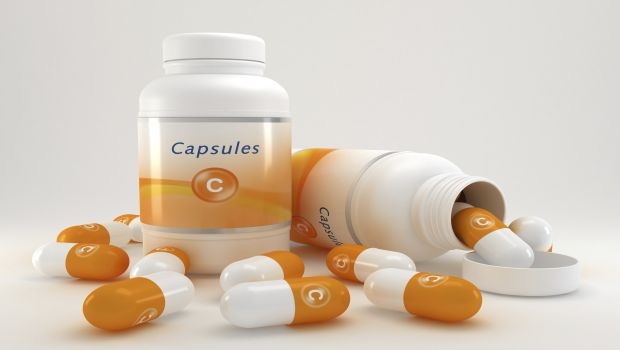When creating a dietary supplement label, there are key opportunities leading brands should consider to stand out, and to take relationships with their end-consumers to the next level.

When creating a dietary supplement label, there are key opportunities leading brands should consider to stand out, and to take relationships with their end-consumers to the next level.
1. Brands should reach out to their R&D teams to ensure products contain no less than what is on the label, but instead, they should contain exactly what is on the label. Offering a higher dosage of vitamins than the recommended daily amount in exchange for shelf life accuracy offers mixed signals from a consumer trust standpoint, as they are only able to see the minimums on the label. Recent studies show that microencapsulation shields ingredients exposed to high temperatures and cross-interactions with a greater degree of ingredient protection, allowing companies to reduce overages and improve label accuracy.
2. For basic quality assurance, ensure to include GMPs (good manufacturing practices) on the label. There are several different label assurance methods, similar to how a laptop says Intel, so consumers know there is a certain benchmark that was hit for performance and quality. The GMP has always been a good benchmark to assure consumers that there is a quality standard met. From a physician’s standpoint, it is always good to ask these questions regarding the supplement manufactures as they are creating labels: Is there an assurance that the company did the due diligence to assess the product before and after production? Was the correct genus and species used? Was the pre-production batch of materials tested for toxicity or microbiological contamination, as well as ingredient activity? These are crucial questions physicians need to assure that anything recommended meets a certain standard, which reduces potential adverse events, side effects and drug interactions. This gives physicians confidence that recommendations are both safe and effective.
3. When working with plant based antioxidants such as lycopene, beta-carotene, astaxanthin, resveratrol, cocoa, and olive leaf to improve customers’ nutrition, the rule of thumb is for ingredients on the label to be standardized. Standardized ingredients imply each ingredient will provide exactly the same amount of active compounds in every capsule, every time customers make their purchase. With standardization, it is important to not only look at the individual ingredients, but also look for the synergy of the total combination of ingredients, as the best products or supplements have a “sweet spot." In the supplement manufacturing industry, it is found that the individual ingredient, as well as the interaction and combination of specific ingredients, may hold further energy and efficacy to optimize outcomes. Standardization offers confidence in products that ensures the recommendations meet these requirements and can allow for further trials. Having a product evaluated in some type of clinical trial is the evolution of the industry. It’s important to show not only the individual ingredients’ benefits, but also how the combination may have more potency than each individual ingredient alone; the only way to achieve this is through standardization.
4. Final supplement products should be within the RDA (recommended daily allowance) as per the individual ingredients. The RDA provides the bare minimum for the daily requirements, and by meeting this level, the consumer is confident that his or her needs are being addressed and met. This does not take into consideration each individual’s unique genetic SNPs and/or biochemical variations, and over time RDA needs to be expanded to include more individualization. Some clients may need exponentially more than RDA amounts, and others may only need a fraction of this amount. However, the RDA gives all of us confidence that basic needs are being met, and this is at least a starting point to assess individual needs.
The industry tends to look at a label claim as marketing tool. However, a claim is a promise to the consumer designed to set their expectations. It is always better to go for the moderate claim backed by research on the finished product itself.
The future of natural products is going to be based on quality and efficacy. The industry as a whole must continue to maintain processes that guarantee purity, safety and efficacy. Consumers will demand more as their knowledge continues to expand. This will allow quality companies, who are properly labeling and who are also using necessary processes to guarantee legitimacy of labels, to rise to the top. Consumers trust that the labels they are reading and the products they often use provide safe and effective solutions, and they should be able to maintain that trust. Labels will move from marketing claims to clinical outcomes as the industry continues to provide consumers with effective and certified product ingredients, as well as researched finished products.
Dr. Mark Menolascino, M.D., M.S., ABIHM, ABAARM, IFMCP is a key medical opinion leader at Lycored. Menolascino is the founder and medical director of the Meno Clinic Center for Advanced Medicine in Jackson Hole, Wyoming, specializing in utilizing nutritional strategies for optimal health and performance. He combines multiple disciplines with four board certifications, including Internal Medicine, Anti-Aging Medicine, Functional Medicine, Integrative Holistic Medicine and a Masters in PsychoNeuroImmunology.
Golan Raz is global vice president and head of Lycored’s health and nutrition division. Raz is a graduate of Bar Ilan University law school with a specific research on bio-ethics, the field of health nutrition. Leading numerous global clinical activities currently reflect his interests in advancing therapeutic nutrition as well as cardiac protection, systemic skin protection and prostate health. Raz has been a member of Helm Society round table for numerous clinical trial discussions of new therapies for multiple pathways.
About the Author(s)
You May Also Like




.png?width=800&auto=webp&quality=80&disable=upscale)